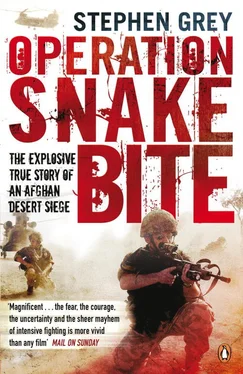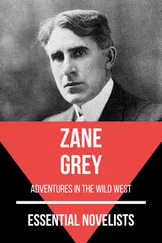B Company, which now had to pick up the pieces, had been in Helmand months now. Arriving on 15 September, they had been attached as mentors to the 400-strong 2nd kandak of an Afghan army brigade based in Helmand. They spent the first few weeks in training at Camp Shorobak, the ANA base by Camp Bastion, while a few of Jake’s men like Sergeant Lee Johnson had been detached and sent up to the Kajaki dam to mentor the ANA up there.
They had learned some lessons. For the first few weeks it was Ramadan, and the Afghans refused to work more than two hours a day. They also resisted the training. ‘That kandak was never keen to learn,’ recalled Jake, ‘mainly because of the Afghan nature of thinking they knew it all already. They felt it was slightly demeaning for them to be trained again.’ But, over time, they had built relationships and got a sense of individuals.
Then the typically abrupt order had come from President Karzai. The ANA were told to grab their weapons as soon as possible and head out west from Helmand and straight to Delaram in next-door Nimroz province. If the Taliban captured the town it would be dire news. It controlled a bridge on Highway One – the main strategic ring road from Herat on the Iranian border through Helmand and on to Kandahar.
Then, when they got there, the orders changed again. Now Karzai wanted to move his army 35 miles north to take Golestan back from the Taliban. ‘It was all very short notice, both times,’ remembered Jake. ‘Both times it was sort of we’re going in four hours. Both times, we managed to stall them by saying, essentially, if you go now you’ll be without us, and therefore you won’t have cover. You won’t have any helicopters for casualty evacuation. So wait until we’re ready!’
While Karzai might have ordered an Afghan attack, it was Jake who had to lead the mission. Jake’s ANA kandak commander, Colonel Rahimi, was already in an excitable state in Delaram, particularly when the Taliban began probing the town’s defences and lobbing mortars. ‘Every time they heard an explosion they sent for me to tell them what to do. It was a little pathetic,’ said Jake. He had to calm Rahimi down by stationing him up a hill to ‘survey his troops’ and leaving the running of the kandak to B Company’s teams. When the order came to move north, Rahimi was happy to send his men forward under Jake’s command, but he refused point blank to go himself. That did make life a bit easier for B Company. But it was not a great omen.
In the end, Jake led a sixty-vehicle convoy north composed of the survivors of the local ANA force, about half of his ANA kandak and an A-Team of the US Green Berets. The US reservists stayed behind this time.
Intelligence said there were 400 to 1,000 Taliban around Golestan. This was exaggerated ‘Afghan numbers’, said Jake. But he was clear the enemy force was substantial, and they had mined the approaches from a mile away.
The direct approach to Delaram went up a steep-sided canyon. But, to avoid mines and ambush, Jake decided to cut a trail through the mountains in the ultimate of cross-country driving. ‘It was the most beautiful terrain I think I have ever seen,’ he said, ‘utterly devoid of people, apart from the odd nomad, and utterly barren.’
By avoiding the enemy’s defences, Jake and his force shocked them into simply abandoning the town: melting away sensibly to avoid a stand-up fight.
Looking back on it, Jake would regard the trip to Delaram and Golestan as one of the highlights of the tour. He and his sergeant-major, Daniel Benson, got to know their men and the Afghans better; it was beautiful country; everything went to plan and there were no casualties from his troops or from among his Afghans.
But it was also Jake’s first taste of the gulf between tactics that worked and a broader strategy in Afghanistan that seemed to make little sense.
‘The frustrating thing was we spent a week there in Golestan. We stabilized it, patrolled around and talked to the locals. We held shuras . Everything went very well. They wanted the government to stay there and told us of their intimidation by the Taliban, who had murdered several of the town’s elders. They welcomed the ANA and ISAF troops. And then we left.’
After building up the hopes of the people of Golestan, a promise by the Italian military to take over security came to nothing. When B Company pulled out, the town was simply abandoned, and within four days was back in Taliban hands.
‘So it was a clearance without a hold,’ said Jake. ‘And therefore in many ways a waste of time, other than it probably relieved the pressure on Delaram, which did not fall to the Taliban. It was very successful in the sense that we avoided fighting. It is a success when you don’t have to flatten a place. So that’s good.’ But, though he was no expert on Afghan politics, this did strike him personally as at least one example of ‘people not always being able to control President Karzai and therefore Karzai being able to just throw out pretty daft orders, which he is not backing up with resources to do the follow-up afterwards.’
At NATO headquarters, General McNeill was getting sick of such escapades. And they happened month after month after month. There was a routine to how it worked. Something like telephone terrorism. First the chief of staff of the Afghan army would call. ‘We need to act!’ he would say. Then the defence minister. ‘We can’t let the Taliban take this town,’ he would be told. Then the interior minister: ‘It would be a sign of weakness to let them move in!’ Finally, the call would come from the man who had orchestrated all these appeals, President Karzai. ‘General, we have to do something!’
It would all build up like a national crisis. A NATO and Afghan force would then be scrambled. When they arrived in the latest dust-ridden town in the back of beyond, they might find the police force packing up and getting ready to flee. But – nine times out of ten – it was down to politics, like these local cops had not got paid, or some drug dispute. Someone had then called the palace and brought in NATO to solve a local power struggle. Where was the long-term thinking? Where was the strategy?
Some diplomats in Kabul would put it more strongly. How could American and British lives be risked in an ‘Afghan-led’ campaign when the Afghan president was so out of touch? And why – some asked – did NATO commanders agree, time and again, to follow the whims of Karzai?
The British had done the same in 2006. When Karzai and the Helmand governor had asked them to push their thin forces across northern Helmand, they had agreed too readily, it was argued. The result had been the death of too many soldiers and a destruction that finally led to the Musa Qala truce.
11. Killer with a Conscience
‘Every time I shoot at a soldier, I am not sure if it is right or wrong,’ said the Taliban commander. He was using the old word angleez , English, for his enemy.
‘Why?’ said the journalist.
‘Well, it is not the soldiers who are the occupiers. I think about their families. It is their leaders, the politicians and generals, that I would like in the sights of my gun,’ he said.
Mullah Sadiq, the commander talking on the mobile phone, had a thing about politicians. He used to joke about putting Mullah Omar and Osama bin Laden in a boxing ring with Tony Blair, George Bush and John Howard, then the Australian prime minister.
‘Lock them in the ring. Let them fight to the death. Whoever wins the match can win this war,’ he said.
‘That sounds a bit unfair. It’s two against three!
‘That does not matter. Whoever will survive will survive!
Sadiq was from Sangin and still kept his family at home there, but he was now the chief commander on the Kajaki frontline, in daily battle with the Royal Marines and one of those they used to see in the distance, talking on a mobile phone or a radio. Today, he was talking to Qais Azimy, a senior journalist with Al Jazeera’s English channel. They had been in touch for many months after they met by accident at an emergency hospital in Lashkah Gah.
Читать дальше












